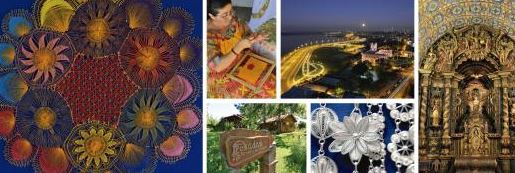
A group of forty qualified tourism officials, professionals and university professors of tourism of UNWTO Member States from both the host country and representatives of Argentina, Brazil, Bolivia, Chile, Costa Rica, Ecuador, Honduras, Panama, Peru and Puerto Rico, will meet in Asunción on the occasion of this course that aims to provide participants with the knowledge, tools and opportunities to reflect, discuss and implement the relevant issues addressed in the development of tourist routes with integration of communities; the creation and design of a tourist route, its development and implementation, its management and monitoring and its promotion and commercialization.
This course, like all the initiatives of the UNWTO.Capacity program, has a theoretical-practical approach and is structured in modules and by processes and the contents are based on concrete facts and are presented through presentations, the analysis of real cases, debates, works in group and practical activities, in order to share with the assistants as much theoretical knowledge as tools and capacities that allow them to make a practical application in their own destinies. This methodology contributes to the achievement of a highly interactive learning experience and, therefore, indisputably more enriching and productive.
As a finishing touch, SENATUR kindly invites the attendees of the course to participate in the inauguration of the 14th edition of the International Tourism Fair of Paraguay (FITPAR), on 13 October, a space where products, services and tourist destinations of the region are presented to the professional market and the general public.
"Every time we travel, we use a whole chain of services provided by different actors, whether transportation, gastronomy or the purchase of products in a local market. This is what we know as a multiplier effect of tourism in the economy, a whole made up of various suppliers that constitute a long chain of value to create employment, empower local communities and contribute to improving the living conditions of local people, opening up new opportunities for a better future, "said Carlos Vogeler, Executive Director of UNWTO. He adds that "tourism can only thrive if it integrates the local population by encouraging social values such as participation, education and improvement of local governance. At the same time, there can be no true development of tourism if that development works in any way to the detriment of the values and culture of the receiving communities or if the socio-economic benefits it generates do not come directly to the communities. "
